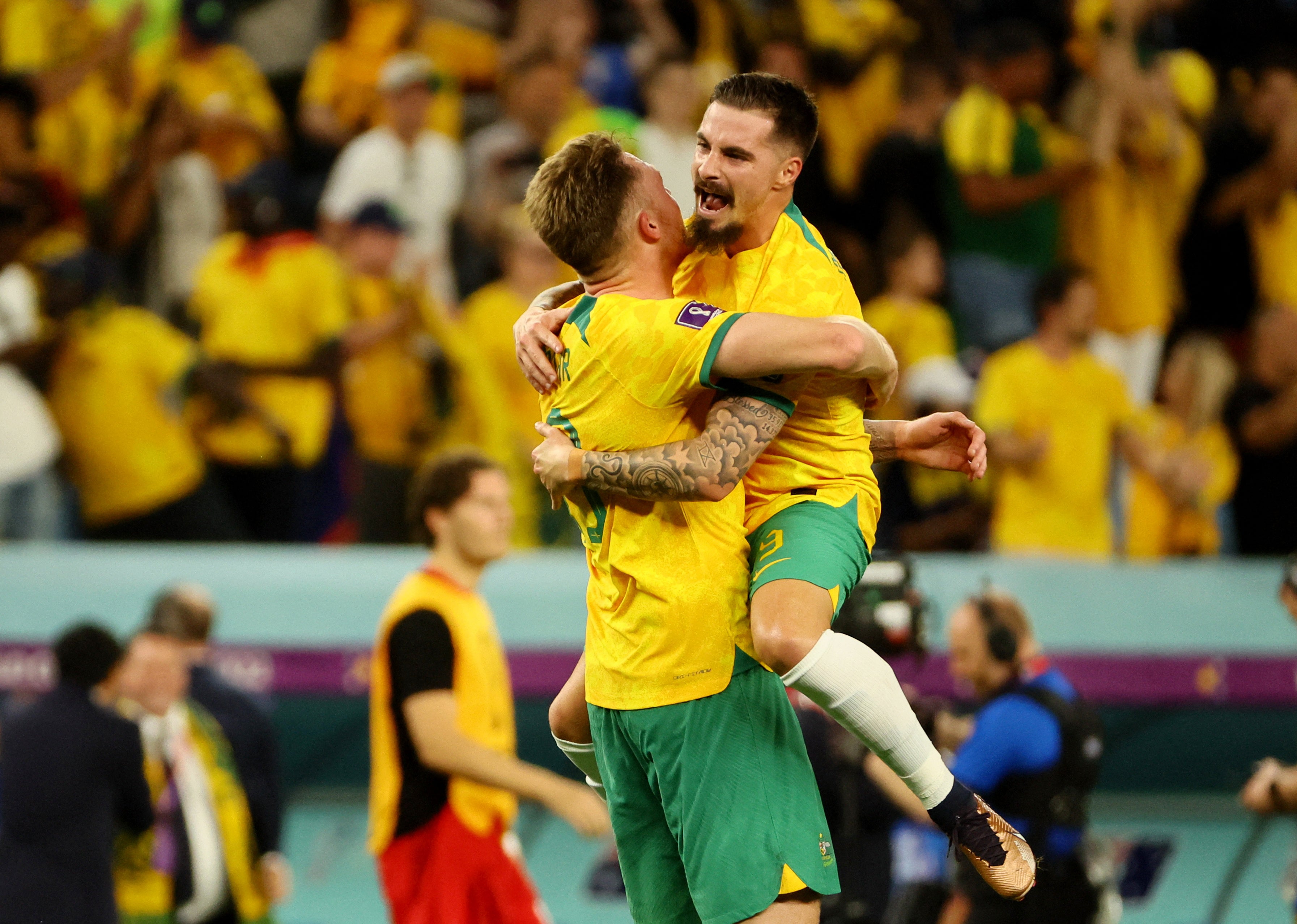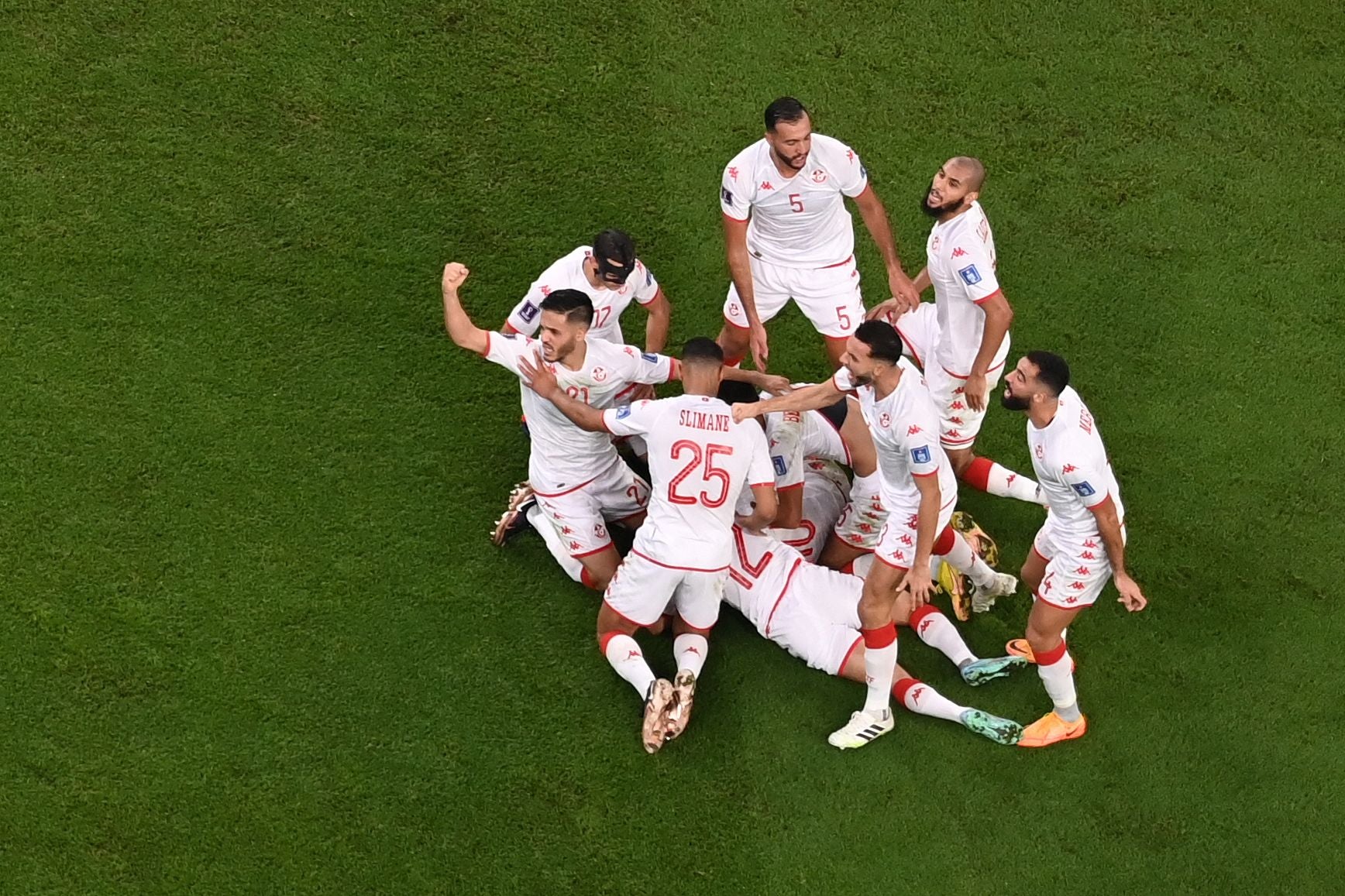Group D’s gripping climax shows why Fifa shouldn’t tamper with a perfect World Cup format
An expansion to 48 teams in 2026 is still being finalised but however Fifa plays it, the World Cup will lose some of its ability to thrill

Your support helps us to tell the story
From reproductive rights to climate change to Big Tech, The Independent is on the ground when the story is developing. Whether it's investigating the financials of Elon Musk's pro-Trump PAC or producing our latest documentary, 'The A Word', which shines a light on the American women fighting for reproductive rights, we know how important it is to parse out the facts from the messaging.
At such a critical moment in US history, we need reporters on the ground. Your donation allows us to keep sending journalists to speak to both sides of the story.
The Independent is trusted by Americans across the entire political spectrum. And unlike many other quality news outlets, we choose not to lock Americans out of our reporting and analysis with paywalls. We believe quality journalism should be available to everyone, paid for by those who can afford it.
Your support makes all the difference.For about 10 seconds, Tunisia think they’ve scored. Wahbi Khazri’s free-kick is flicked home gymnastically by an offside Nader Ghandri before Steve Mandanda’s 37-year-old reactions can respond, and the thousands of Tunisian fans go feral. With a fair wind the noise erupting from the Education City Stadium might make it to the Al Janoub Stadium 12 miles south, where Australia and Denmark are playing out the other half of this high-stakes Group D finale.
France are already qualified but that in itself adds to the potential drama as Didier Deschamps shuffles his pack, deploying five central midfielders in a line-up which looks confusing on paper and offers no more clarity on the pitch. Playing in an unfamiliar left-back role, Edouardo Camavinga wears the look of a man convinced he’s left his wallet around here somewhere, and it all gives fourth-placed Tunisia hope of the win they desperately need. Denmark go searching for three points too; Australia are the ones left a little confused, unsure whether to stick or twist, knowing a draw might be enough but that the single waft of a Danish or Tunisian foot could eliminate them at any moment.
Tunisia keep coming, scenting blood: they are the dominant team against a discombobulated France and Khazri has a penalty appeal turned down. Meanwhile Matthew Ryan, the Australian goalkeeper, is conducting some masterful time-wasting: on 27 minutes he ignores the referee’s hurry-up gestures so that the official, Mustapha Ghorbal, has no choice but run 50 yards downfield to convey his message, taking up another 30 seconds much to the exasperation of the Danish players.
After half-time Tunisia really do score. It’s a mazy run by Khazri who prods the ball past Mandanda and watches it trickle inside the post before collapsing in a heap, either through injury, exhaustion, euphoria or all three. Now Tunisia are second and Australia can no longer sit on their 0-0 draw with Denmark. Do they know it? It looks like the message has got on to the pitch because moments later, an even better goal: Matthew Leckie charges forwards all alone, but he twists and turns and spins the Denmark defence into a dizzy mess before sliding the ball home. In the stands, a golden inflatable kangaroo is launched into the night sky. “Game on. Group on,” roars BBC commentator Pat Nevin.

It was that rarest of scenarios in football, like the final Match of the Day of the season, when two games simultaneously demand your attention as they push and pull the narrative one way and then the other.
It was ironic that this story should unfold on the same day news broke that Fifa is still considering a host of possibilities for the format of the 2026 World Cup. We already know that there will be 48 teams, increased from the mathematically satisfying 32 teams in every tournament since 1994. The governing body had approved 16 groups of three but is now weighing up other options including, according to The Athletic, using penalty shootouts either before group matches or after them in order to avoid draws, or switching to a clunky 12 groups of four which doesn’t add up to a smooth and simple transition to the knockout rounds.
That is not to disregard some potential positives of an expanded World Cup. A whole host of nations who qualify once in a blue moon would significantly increase their chances of reaching the finals and enjoying all the knock-on benefits of their nation revelling in a summer tournament, from Scotland to New Zealand and so many in between. Magical players like Mohamed Salah and Erling Haaland might have been gracing the World Cup stage right now, rather than watching from home, had there been more teams admitted this time.
But the trade-off of adding to the pot is to dilute the quality while disrupting a proven format. With 48 nations, the gulf between the strongest side in the group and the weakest is, in most cases, going to be enormous from now on. Groups of four would presumably require some third-placed teams to qualify too in order to make up the numbers in the knockout stages, while groups of three sounds devoid of jeopardy, with only one team eliminated and two going through, more like a warm-up to the knockouts than a compelling stage in its own right.
A competition of 32 teams has a symmetry to it, and for the men’s World Cup that number is pitched just about right when it comes to the quality of the sides that make it, as well as the preservation of the World Cup and its mythical status as a promised land, each hard-earned place to be cherished rather than liberally handed out.
It seems likely that this sort of climax to Group D will be a rarer sight at future World Cups. As the clock ticked away the France-Tunisia game descended into a scrappy affair, with Tunisia helpless and reliant on Denmark to scupper Australia’s lead. Across the city, the Danes plugged away but they had run out of ideas. And so Tunisian substitutes huddled around phones and iPads watching the final minutes go by and the full-time whistle blow, their victory in vain, as Australia burst into celebration at the end of the World Cup’s most dramatic day yet.
Join our commenting forum
Join thought-provoking conversations, follow other Independent readers and see their replies
Comments